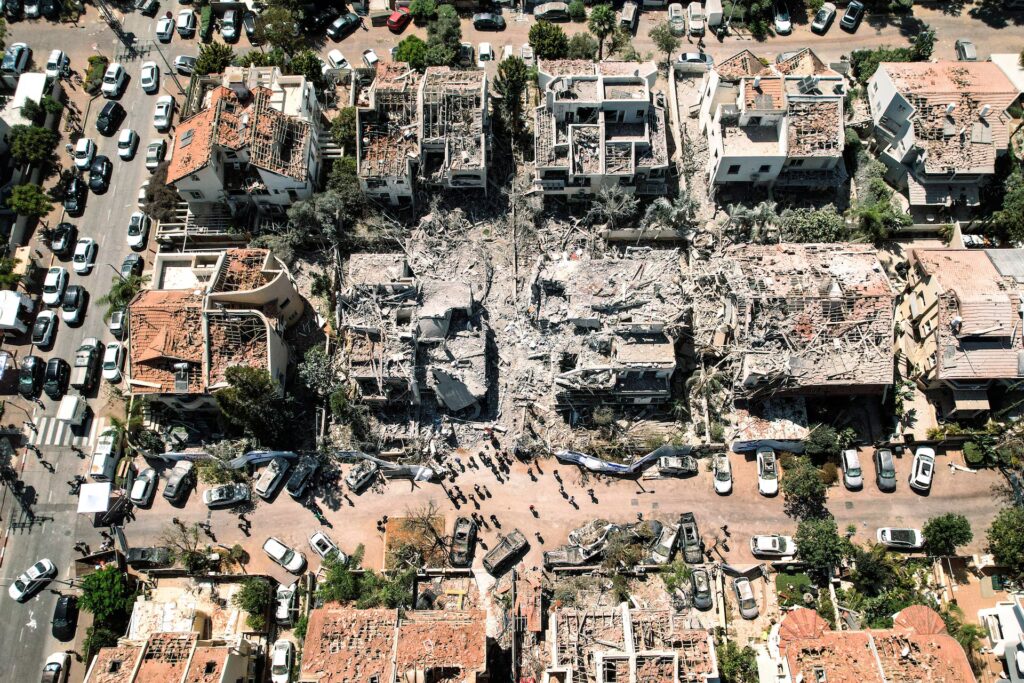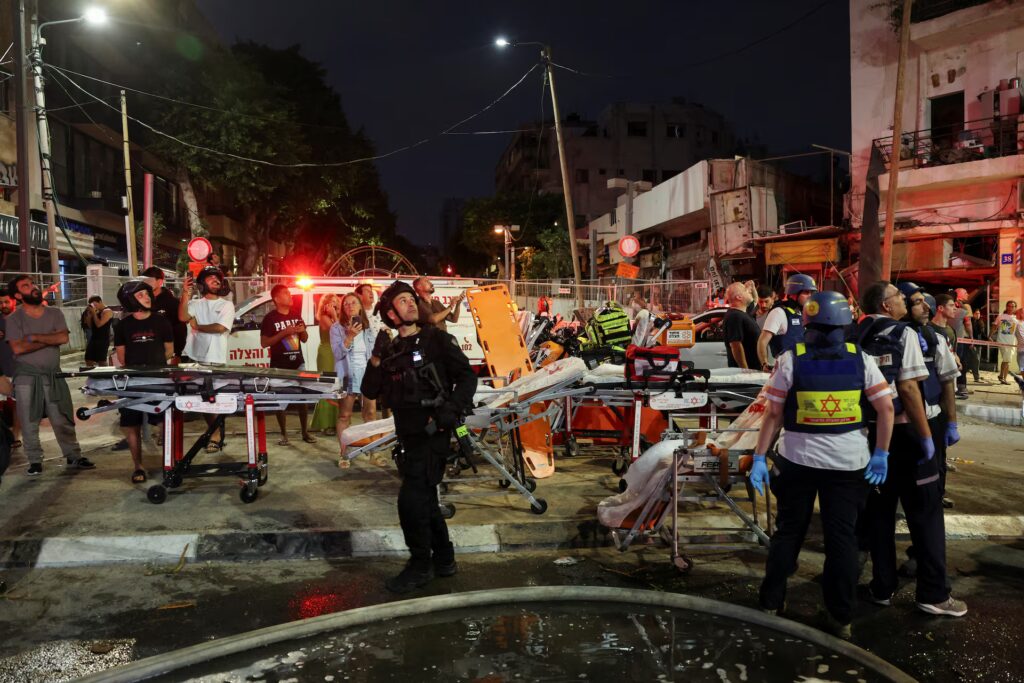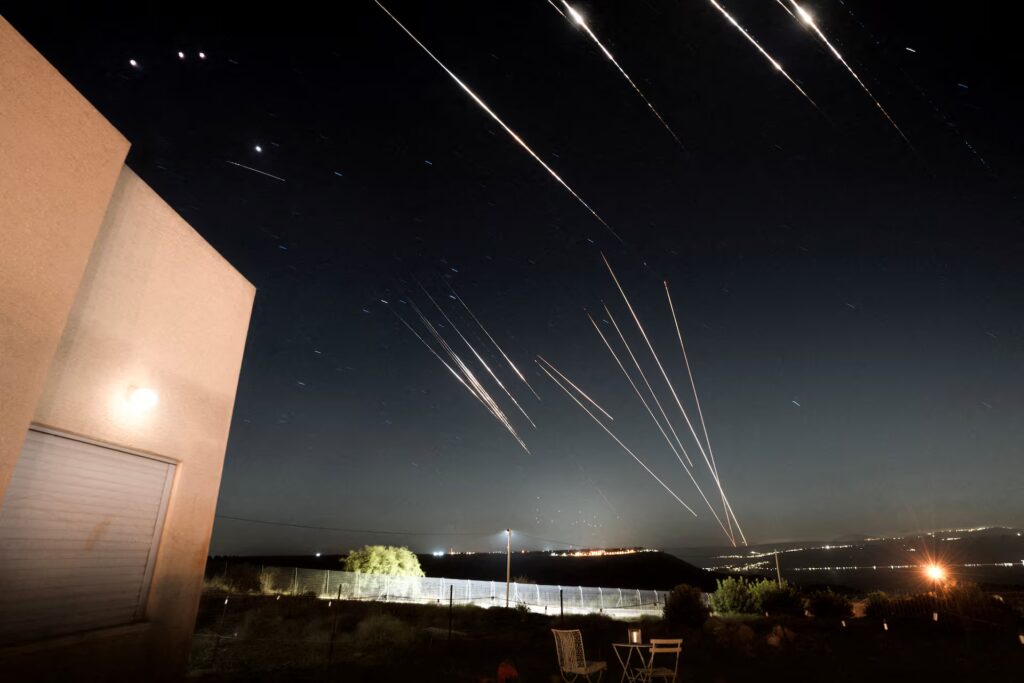
U.S. Weighs Military Options Amid Escalating Israel-Iran Conflict
As Israel and Iran exchange missile strikes, regional tensions surge, prompting the U.S. to weigh military options. The escalating conflict is expected to reshape global defense strategies, driving demand in the ballistic missiles and nuclear weapons markets.
Key
Insights
-
Israel-Iran Conflict Escalating: On June 19, 2025, Israel launched airstrikes on Iran’s Natanz and Isfahan nuclear sites; Iran retaliated with missile attacks on Israel, including a deadly strike on Soroka Medical Centre, significantly escalating tensions in the region.
-
U.S. Strategic Caution: President Trump affirmed support for Israel but has not committed military forces, instead reviewing sanctions and defense plans while encouraging diplomatic restraint.
-
Defense Market Impact: The conflict is expected to boost global demand for ballistic missile systems, missile defense technologies, and nuclear weapons modernization programs, particularly in volatile regions and among NATO and Middle Eastern allies.

Washington, D.C. — Tensions in the Middle East reached a dangerous new high on Thursday as Israel and Iran exchanged a series of direct missile strikes, prompting the United States to carefully review its military and diplomatic posture. While President Donald Trump reaffirmed America’s support for Israel, he stopped short of committing U.S. forces, signaling a wait-and-see approach amid growing international alarm.
Escalation of Hostilities
The conflict intensified early Thursday morning when Israeli warplanes launched precision airstrikes on Iran’s Natanz and Isfahan nuclear sites, reportedly damaging critical infrastructure related to Tehran’s uranium enrichment program. Defense officials in Tel Aviv indicated the strikes were part of a broader campaign to degrade Iran’s strategic capabilities and send a message to Iranian leadership following months of rising tensions.
Within hours, Iran retaliated with a barrage of missiles that struck several locations inside Israel. One of the hardest-hit targets was Soroka Medical Centre in the southern city of Beersheba, where at least two dozen civilians were killed and many more injured. Emergency responders described scenes of chaos as medical staff and patients sought shelter during the bombardment.
“These are some of the most serious and sustained hostilities we’ve seen between Israel and Iran since the 1979 revolution,” a senior defense analyst told Reuters, warning that the tit-for-tat escalation could spiral into a broader regional war.

Strategic and Human Toll
The airstrikes on Iran’s nuclear facilities have raised questions over the scale of damage inflicted and the potential impact on Tehran’s nuclear ambitions. While Israeli intelligence claims the operation achieved its objectives, Iranian media outlets have denied significant losses and accused Israel of committing acts of war.
On the Israeli side, the human cost of Iran’s retaliation has been severe. The missile strike on Soroka Medical Centre disrupted essential medical services in the region, drawing condemnation from international humanitarian organizations.
Meanwhile, global oil markets responded nervously to the developments. Brent crude prices surged above $100 per barrel for the first time in over a year, as investors reacted to the heightened risk of regional instability and possible disruptions to Gulf oil shipments.
U.S. Response: Strategic Ambiguity
In Washington, President Trump convened top national security advisers to assess military options and evaluate the broader implications of the conflict. While he reaffirmed the United States’ “ironclad” support for Israel, the president emphasized restraint, signaling that any U.S. military involvement would be contingent on further provocations from Iran.
“We are monitoring the situation closely,” said White House Press Secretary Sarah Mitchell. “All options remain on the table, including increased sanctions and enhanced military support, but we are not rushing into conflict.”
Pentagon sources, speaking on condition of anonymity to CNN, confirmed that contingency plans are being reviewed, including the rapid deployment of air and naval assets to the region if necessary.

Implications for the Ballistic Missiles and Nuclear Weapons Markets
The renewed conflict is expected to have a significant ripple effect on global defense procurement trends—particularly in the ballistic missile and nuclear weapons sectors.
According to defense analysts, countries in volatile regions are likely to accelerate investments in long-range strike capabilities and missile defense systems. Israel’s use of precision-guided missiles and Iran’s retaliatory ballistic missile strikes are being closely scrutinized by military planners worldwide.
“The Middle East is becoming a real-time case study for the value and vulnerability of ballistic missile infrastructure,” said Marcus Dean, a senior analyst at the Center for Strategic Technologies. “This escalation will likely trigger a surge in regional missile development programs and encourage arms imports by Gulf states.”
In parallel, renewed attacks on nuclear infrastructure—especially the Natanz and Isfahan facilities—have reignited global debate over nuclear deterrence and proliferation. Defense contractors involved in nuclear hardening, missile shielding, and early-warning radar systems are expected to see rising demand from nations seeking strategic deterrence.
Industry forecasts now anticipate a compound annual growth rate (CAGR) of over 7% for the global ballistic missile market through 2030, with increased emphasis on hypersonic glide vehicles and mobile launch platforms. Meanwhile, the nuclear weapons modernization market—driven by the U.S., Russia, China, and now potentially Iran and Saudi Arabia—is likely to receive renewed attention and funding.
Diplomatic Crossroads
While both Israeli and Iranian officials maintain aggressive postures, the international community has urged de-escalation. The United Nations Security Council is expected to convene an emergency session later this week to address the situation.
European leaders, including French President Emmanuel Macron and German Chancellor Anna-Lena Baerbock, have called for an immediate ceasefire and the restoration of backchannel diplomacy.
“The region cannot afford another war,” Macron warned in a joint statement with EU officials. “All parties must show restraint and return to the path of dialogue.”
As the world watches, the next 48 hours are expected to be critical in determining whether this outbreak of violence can be contained—or whether it will become the flashpoint for a much larger geopolitical and defense realignment.




